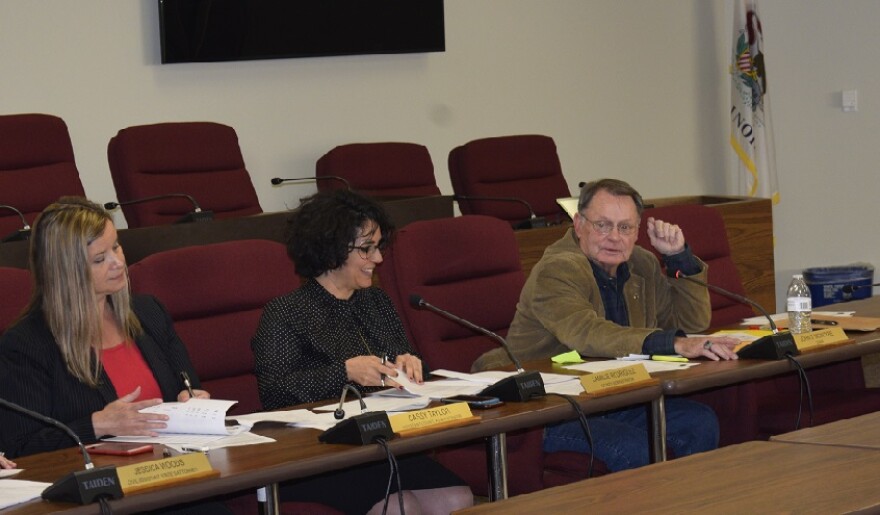McLean County officials are starting to explore how welcoming they may be for recreational marijuana sales when they become legal next year, even though the odds are slim the county would get a dispensary in an unincorporated area.
Assistant State’s Attorney Jessica Woods told the County Board’s Executive Committee on Tuesday the county would have to establish zoning guidelines for cannabis growers or sellers if it wishes to allow them in the county.
She added McLean and DeWitt counties are set to receive three dispensary permits in the first round early next year, with the medical cannabis dispensary in Normal getting dibs for the first license and a second location if it chooses, plus the state of Illinois has indicated west Bloomington and neighborhoods near the Illinois State University campus which were the most negatively hurt by the war on drugs would likely be next in line for the third license.
“At this point I don’t see it likely that an unincorporated area of McLean County would be the recipient of a dispensary at this time,” Woods said.
Existing medical marijuana dispensaries can apply for recreational licenses starting Oct. 15.
Local governments will be able to tax dispensaries up to 3%, while the county can tax an additional 3% on sales. The county can also tax dispensaries in unincorporated areas up to 3.75%.
Even if the county chooses to opt out of allowing dispensaries in unincorporated areas of the county, it would still get its portion of sales tax revenue, Woods told the board.
Committee members Susan Schafer, R-Bloomington, and Laurie Wollrab, D-Normal, indicated they wanted the county to move as quickly as possible to position it to receive any potential revenue from marijuana sales.
“If Normal’s dispensary does get that license pretty quick for the one that they have now, there might be some missed opportunities,” Schafer said.
County Board Vice Chairman Jim Soeldner replied even if the county approved taxes before January, it likely wouldn't being to receive tax proceeds until next fall.
County Board Chairman John McIntrye said he’s not sure where the full board stands on marijuana, but he’s concerned about the potential costs.
“Where will the county stand on having to staff law enforcement for example, being the large county we are and all the adjacent counties and what are they going to do?” McIntyre asked. A lot of things are contingent on approval of other counties as well as what we are doing.”
The county’s proposed 2020 budget doesn’t include any revenue from cannabis sales.
Auditor’s Dispute
McIntrye said the County Board is still waiting for a legal interpretation from State’s Attorney Don Knapp to help resolve a bookkeeping dispute between the board and County Auditor Michelle Anderson that came to light during a recent County Board Finance Committee meeting.
The Finance Committee wants to know if it can order Anderson to revert to previous methods for recording revenues and expenses after County Administrator Camille Rodriguez informed the board Anderson made the change without the county board’s approval.
“My suggestion was if the auditor had a change that she thought was good as far as the accrual method, then all she really needed to do was come to the Finance Committee and justify her change and see where we are,” McIntyre said.
County Treasurer Rebecca McNeil said the change was slowing the county’s bill-paying process.
“I don’t see any reason to disrupt our services or slow down what we are trying to do to provide services in the county,” McIntrye said.
The County Board will consider seeking an independent auditor’s opinion at its Oct. 15 meeting.
McIntrye said he would like to take the opinions of the state’s attorney and the outside auditor and meet with Anderson and McNeil to “get on the same page.”
WGLT depends on financial support from users to bring you stories and interviews like this one. As someone who values experienced, knowledgeable, and award-winning journalists covering meaningful stories in Central Illinois, please consider making a contribution.


